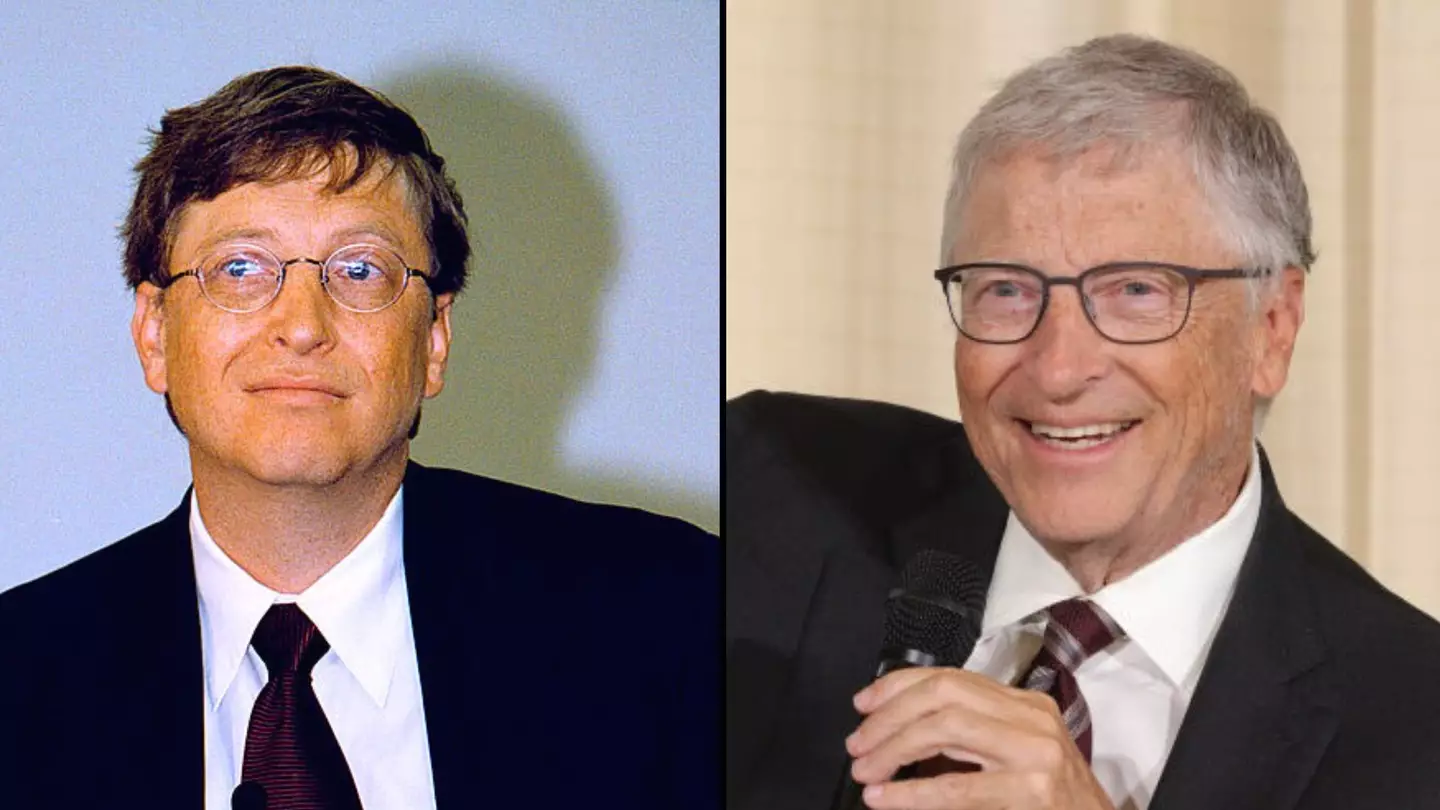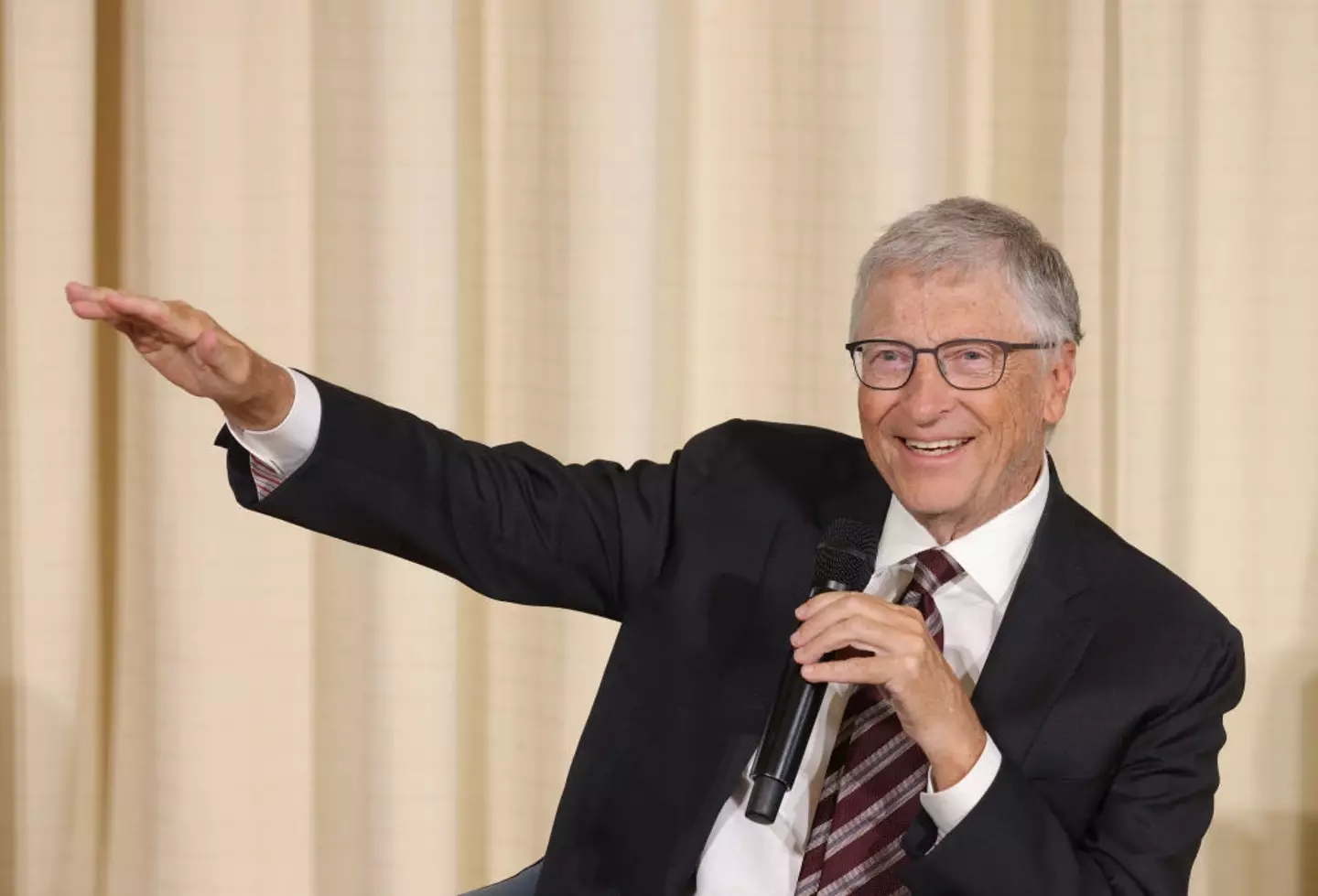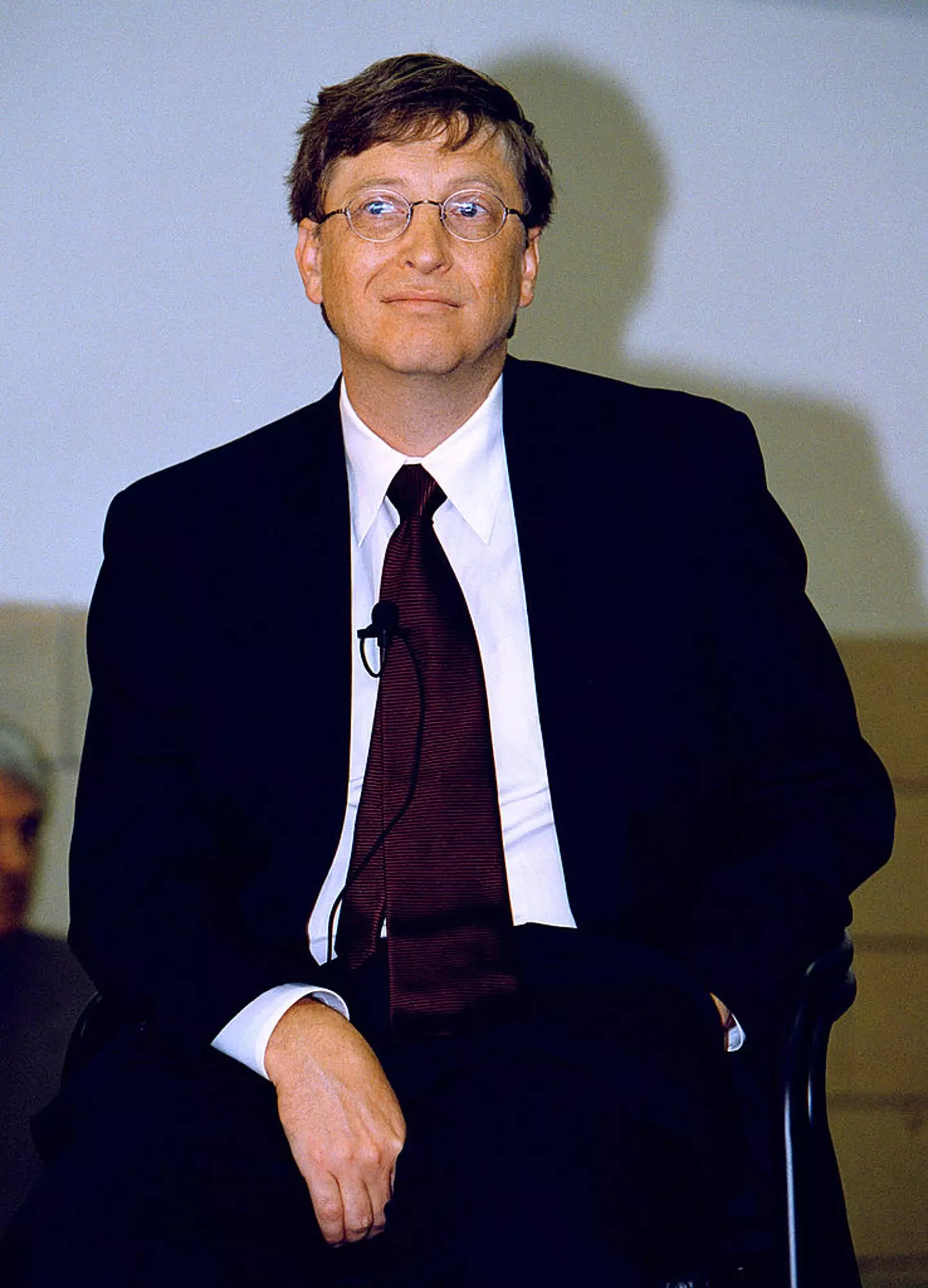
He's one of the biggest names in tech - having founded Microsoft and all - but did you know Bill Gates also made some eerily accurate predictions about the future of modern society?
Forget the 'Living Nostradamus' or Bulgarian mystic Baba Vanga, as the 68-year-old billionaire seems to have his finger on the pulse of the fortune telling industry.
In his 1999 book Business @ the Speed of Thought, Gates made a series of predictions about the way he saw modern technology developing - and some of them are huge parts in our day-to-day lives.
Granted, Gates certainly had expert insight being in the industry - but he made some bold predictions at the turn of the millennium.
Advert
On top of pointing out that a pandemic could bring the globe to a standstill all the way back in 2015, way before we knew what Coronavirus was, Gates clearly must have some kind of sixth sense.
Below is a list of Gates' 15 big predictions, which are now stapes in our daily lives:
Price comparison sites
Price comparison sites like Compare the Market, Moneysupermarket and Google Products have made getting the best deal on everything from a credit card to new trainers or travel insurance super easy. Here's what Gates had to say on it:
"Automated price comparison services will be developed, allowing people to see prices across multiple websites, making it effortless to find the cheapest product for all industries."
Mobile phones
It's the first item we grab in the morning and where most of our lives are stored, but back in 1999 most people with mobile phones were carrying around Nokia's, Siemens, or Phillips devices.
There might have been a cracking game of Snake on them, but they aren't a patch on the offerings on the market today.
Gates certainly saw the potential in mobiles when he shared his thoughts on the topic his book.
The father-of-three said: "People will carry around small devices that allow them to constantly stay in touch and do electronic business from wherever they are.
"They will be able to check the news, see flights they have booked, get information from financial markets, and do just about anything else on these devices."
Online Finance
Once upon a time, your local bank was the go to place for making any major financial transaction, however, those days are long gone.
Now we can use the internet to pay for goods, send money to our friends and check our bank balance on the go - just like Gates said we would.
He also suggested that some aspects of the medical field would move with the times too and go online, which was also a decent guess - as businesses now offer date-driven healthcare, online consultations and digital prescriptions.
The Microsoft co-founder predicted: "People will pay their bills, take care of their finances, and communicate with their doctors over the internet."
I told you, he's not half bad at guessing what lies ahead, is he?

Virtual assistants
Although he didn't exactly say that we would all be screaming 'Alexa' at the top of our lungs and asking a small circular device to tell us a funny joke, Gates did forecast that we'd have an automated little helper by now.
The tech mogul believed that 'personal companions' arrive to make everyones lives easier in the coming years, saying: "They will connect and sync all your devices in a smart way, whether they are at home or in the office, and allow them to exchange data.
"The device will check your email or notifications, and present the information that you need. When you go to the store, you can tell it what recipes you want to prepare, and it will generate a list of ingredients that you need to pick up.
"It will inform all the devices that you use of your purchases and schedule, allowing them to automatically adjust to what you're doing."
While he didn't tell us we'd be able to turn our lights on and off with Alexa, he was right about the convenience of the devices.
Home-monitoring systems
It turns out that Gates saw technologies such as Ring doorbells and Google Nest technologies coming a mile off, seeing the technology as an upgraded version of a CCTV camera.
"Constant video feeds of your house will become common, which inform you when somebody visits while you are not home," he wrote.
He may not have been able to predict that we'd be able to monitor our front doors from the comfort of a mobile app, but it's still pretty accurate.
Social media
Back in 1999, you had to call your friends up on a landline or make the journey over to see them in person. But this didn't stop Gates from imagining a world where everyone around the world is hyper-connected.
"Residents of cities and countries will be able to have internet-based discussions concerning issues that affect them, such as local politics, city planning, or safety," Gates predicted.
Granted, chat rooms were in existence at the time but no one could have imagined how connected we are now, thanks to the likes of Twitter, Instagram and TikTok.

Auto-generated adverts
Predicting the rise in auto-generated ads, he wrote: "Software that knows when you've booked a trip and uses that information to suggest activities at the local destination. It suggests activities, discounts, offers, and cheaper prices for all the things that you want to take part in."
Smart adverts
Adverts are everywhere these days. You might about how you'd like a new pair of shoes to a friend and then next minute google is showing you images of trainers - Gates predicted this too.
"Devices will have smart advertising," Gates said. "They will know your purchasing trends, and will display advertisements that are tailored toward your preferences."
Sports discussion websites
In 1999, Gates made the prediction: "While watching a sports competition on television, services will allow you to discuss what is going on live, and enter a contest where you vote on who you think will win."
Thanks to social media, sports fans can keep up to date with scores and discuss controversial events in matches as they happen.
Pretty useful right?
Links to sites during live TV
Gates certainly foresaw the dominance of ads in our lives, predicting that future commercials would contain links for viewers to search them up online, scan a QR code or follow the brand on social media.
He wrote in his book: "Television broadcast will include links to relevant websites and content that complement what you are watching."

Online communities
Like social media, Gates saw the future of human connection allowing people to share their interests globally and find like-minded people on the other side of the world, no longer restricted by distance.
"Online communities will not be influenced by your location, but rather, your interest," he said.
Who knew Bill Gates predicted the rise of Reddit?
Project-management software
The modern workplace has certainly been made easier by the invention of apps like Slack, Google Workspace and Microsoft Teams - turns out Gates already had a plan for the digitisation of the office 25 years ago.
Sharing his vision for project management software, he wrote: "Project managers looking to put a team together will be able to go online, describe the project, and receive recommendations for available people who would fit their requirements."
Online recruiting
Linkedin has certainly changed the game for finding a new job and keeping up to date with your current and former co-workers professional goings on as well as giving you a ready made CV available for recruiters to find. Gates definitely saw the gap in the market when it came to professional connectivity too, making the prediction in his book.
"Similarly, people looking for work will be able to find employment opportunities online by declaring their interest, needs, and specialised skills," he wrote.
Business community software
Gates made the following prediction about business community software in his book: "Companies will be able to bid on jobs, whether they are looking for a construction project, a movie production, or an advertising campaign.
"This will be efficient for both big companies that want to outsource work that they don't usually face, businesses looking for new clients, and corporations that don't have a go-to provider for the said service."
Nowadays, we have sites like Upwork, Fiverr and Craigslist allowing small businesses to shop around for clients and freelancers.
Reckon Gates could tell us the lottery numbers too?
Topics: Bill Gates, Technology, Microsoft, Social Media